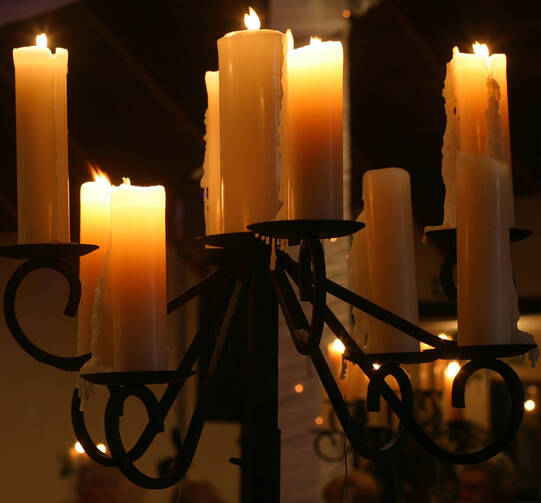It was probably about six or seven years ago that I began to notice a strong undercurrent of sadness in myself around the holidays. I can’t say that I could pinpoint its origin; in fact, it had probably been there quite a while longer.
The stranger thing was, I liked it. It seemed right.
As I started to pay more attention to that wellspring in subsequent holidays I noticed most of the Christmas songs or movies that I loved, if they were indeed “happy”, were only so in a wistful kind of way. (A notable exception: “Love Actually”, which I watch every year – though come to think of it the moment I relish most is probably Emma Thompson standing next to her bed listening to Joni Mitchell and fighting off tears as she realizes her marriage is not what she thought it was. I really am all in on a good Christmas sad, aren't I...)
Rather than the big and flashy candy colored productions I wanted as a kid, Christmas seems to me now more a time for solitude, a chance to acknowledge the losses or burdens of the year, the place and people that were now absent.
Now everything around us says that’s wrongheaded. Christmas is family. Christmas is light. Christmas is joy. And that’s true even, maybe especially, in the Church; what kind of maudlin sad sack of a priest preaches “Merry Christmas; might be time for a good cry, or a little time alone”?
But maybe the sadness that some of us feel at the holidays is not self-pity but invitation. There was a great Maryland province Jesuit named Horace McKenna who spent a good part of his life working with the poor and homeless in Washington, D.C. He once had this to say:
“When God lets me into Heaven, I think I’ll ask to go off in a corner somewhere for half an hour and sit down and cry because the strain is off, the work is done, and I haven’t been unfaithful or disloyal. All these needs that I have known are in the hands of Providence and I won’t have to worry any longer who’s at the door, whose breadbox is empty, whose baby is sick, whose house is shaken and discouraged, and whose children can’t read.”
At Christmas we celebrate the Incarnation, the presence of God in our midst. And while one impulse in that situation is to bring gifts, another I think is that of McKenna – we have the sense that we can lay our burdens down for a bit. We don’t have to be strong or put on a happy face. We can go off in a corner with the Lord somewhere, share our losses, our pain or our exhaustion, and just have a good cry.
“Come to me, all you who labor and are burdened," says Jesus, "and I will give you rest.”








